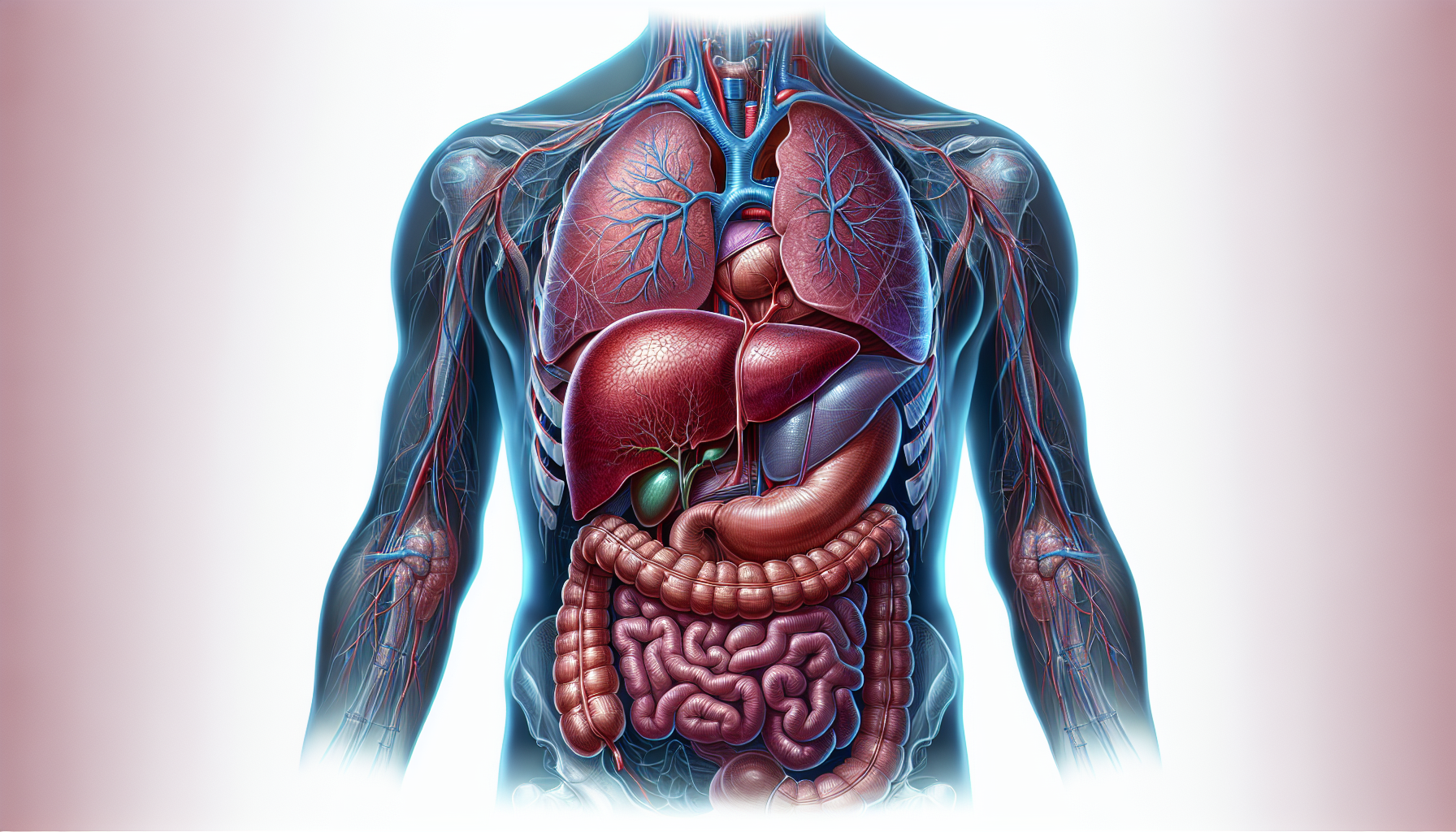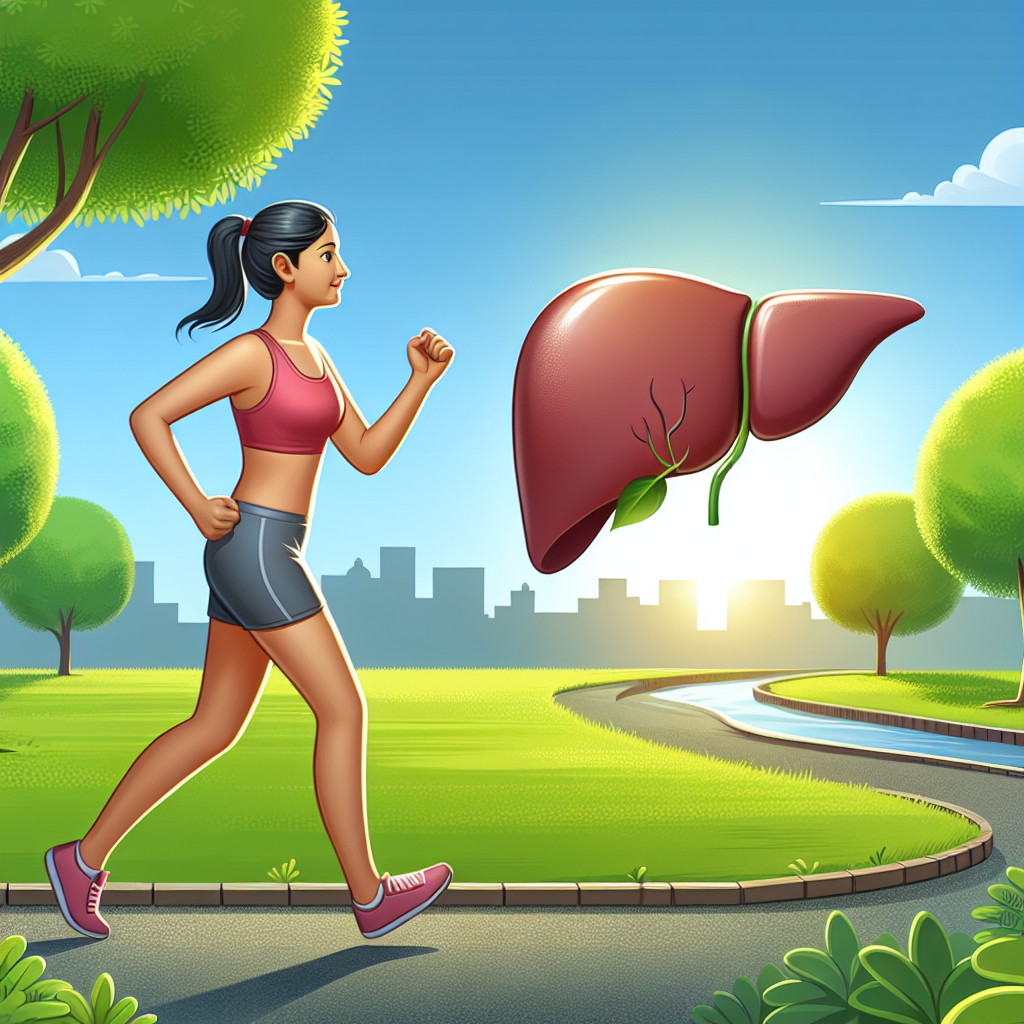The liver is one of the most multifunctional organs in the human body, playing a crucial role in our overall health and particularly in digestion. The liver’s responsibilities include detoxification, protein synthesis, and the production of chemicals necessary for digestion. This article will delve into the liver’s specific functions in the digestive process, its importance for maintaining good health, and ways to support liver function.
The Liver’s Digestive Functions
The liver is an essential component of the digestive system. It processes nutrients absorbed by the intestines, ensuring the body has the energy it needs. One of its primary roles is to produce bile, a substance that helps break down fats into fatty acids, which can be taken into the body by the digestive tract.
Bile Production and Fat Metabolism
Bile is a greenish-yellow fluid that contains bile acids, cholesterol, and bilirubin. The liver cells secrete bile into tiny channels within the liver that lead to the common hepatic duct. This duct transports bile to the gallbladder, where it’s stored and concentrated until needed. During digestion, bile is released into the small intestine to help emulsify fats and aid in their absorption.
Detoxification and Metabolism
The liver also detoxifies chemicals and metabolizes drugs. When we consume food, it’s not just nutrients that enter our bloodstream but also potential toxins. The liver converts these toxic substances into harmless byproducts that are then excreted from the body.
Glucose Regulation
Another vital function is glucose regulation. The liver helps maintain a steady level of glucose in the blood by storing excess glucose as glycogen (a process known as glycogenesis) and releasing it when needed (glycogenolysis).
The Importance of Liver Health for Digestion
Maintaining liver health is paramount for digestion and overall wellbeing. A healthy liver ensures that all digestive processes, especially those related to fat metabolism and toxin removal, function optimally. Diseases affecting the liver, like hepatitis or cirrhosis, can significantly impact digestion and nutrient absorption.
Supporting Liver Function
Maintaining a balanced diet is essential for liver health. Foods rich in fiber, like fruits and vegetables, and those with healthy fats, such as avocados and nuts, are beneficial. Regular exercise also supports liver health by improving metabolism and reducing stress on the organ.
For further insight into the connection between diet and liver health, the article "Maximizing Nutrient Absorption for Digestive Wellness" provides valuable information. Additionally, the importance of hydration for the liver and the entire digestive system is well-articulated in "The Importance of Proper Hydration in Digestive Function."
Common Liver Diseases Affecting Digestion
There are several liver diseases that can interfere with digestion:
- Hepatitis: Inflammation of the liver, usually caused by viral infections, toxins, or autoimmune diseases, can impair the liver’s ability to function properly.
- Fatty Liver Disease: Accumulation of fat in liver cells can lead to inflammation and damage, affecting digestion.
- Cirrhosis: Long-term damage to the liver can result in scarring and loss of function, which hinders the liver’s ability to process nutrients and filter blood.
Understanding these conditions is crucial for prevention and management. The article "Understanding the Effects of Chronic Liver Disease on Digestion" offers a comprehensive look at how chronic liver issues can impact the digestive process.
Liver Health and Related Body Systems
The liver’s impact extends beyond digestion, influencing various other body systems:
- Cardiovascular Health: The liver produces proteins that help carry fats through the body and plays a role in cholesterol balance, affecting cardiovascular health. More on the liver’s connection to the heart can be found in the detailed resource Cardiovascular Health.
- Immune System: The liver is part of the immune system; it filters the blood and helps remove bacteria and toxins.
- Metabolism: The liver’s role in metabolism is vast, including the regulation of blood sugar levels and conversion of excess calories into fatty tissue for storage.
Lifestyle Choices for Liver Health
Adopting a healthy lifestyle can significantly impact liver health:
- Diet: Avoid excessive alcohol consumption, maintain a balanced diet with plenty of vegetables, fruits, whole grains, and lean protein.
- Exercise: Regular physical activity helps burn triglycerides for fuel and reduces liver fat.
- Hydration: Adequate water intake is essential for detoxification processes.
Conclusion
The liver’s role in digestion is indispensable, and maintaining its health is vital for our overall wellbeing. By understanding how the liver functions, recognizing the signs of liver disease, and making informed lifestyle choices, we can better support this critical organ.
For more in-depth information on supporting digestive health through lifestyle, refer to "How Lifestyle Changes Can Alleviate Gastroesophageal Reflux Disease Symptoms" which offers strategies that are also beneficial for liver health.
In conclusion, the liver is a powerhouse in the digestive system, and its health is interlinked with many other aspects of our physical wellbeing. By taking steps to support liver function, we not only improve our digestion but also enhance our overall health.



